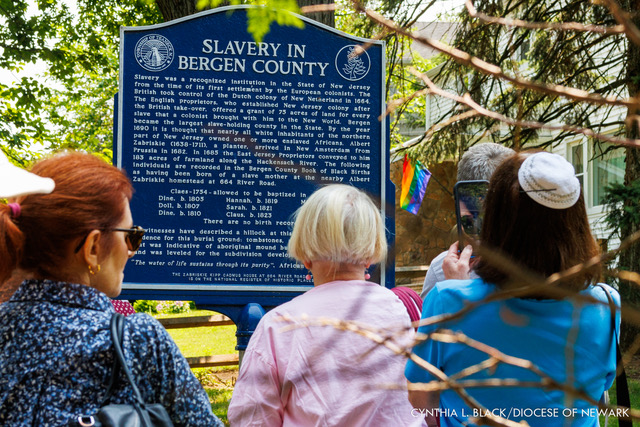TEANECK, New Jersey – Monday marked a day of reflection, a day to learn about the state of New Jersey’s difficult past. It was a reminder that so much of the Garden State’s history is buried deep – along with the remains of the thousands of people enslaved nearly two centuries ago.
Slavery’s final legal death in New Jersey took place on January 23, 1866, months following the declaration of freedom in Texas, or what is known as Juneteenth. President Abraham Lincoln’s 1863 Emancipation Proclamation did not free enslaved Black Americans in the northern states as it was thought that freedom should first come to those enslaved in the more rebellious South. New Jersey intensely refused to ratify the amendment that abolished slavery and involuntary servitude. It was the state’s 21st governor, Marcus L. Ward of Newark, a Republican, who signed a state constitutional amendment that brought about an absolute end to slavery in New Jersey.

In the second year of the official Juneteenth holiday, the Episcopal Diocese of Newark organized a pilgrimage to Bergen County, in the northern Garden State, to visit a few of burial sites of the enslaved. Bergen County, the third richest county in the state, was also the largest slaveholding county in part because many enslaved Africans were used as laborers in its ports and cities. In 1800, Bergen County enslaved 3,000 Africans, which was nearly 20 percent of its total population.
VIDEO: New Jerseyans pay homage to people who remained enslaved after Juneteenth
“We’re using this pilgrimage as an opportunity to go deeper in understanding our own relationship with enslavement and what I call the original sin of the United States,” said The
Right Rev. Carlye J. Hughes, 11th bishop of the Episcopal Diocese of Newark, “and it is a difficult thing for us to get underneath that. We keep trying to go over it and we keep trying to put a Band-Aid on.”
Watch and listen as church members begin the pilgrimage uncovering the uncomfortable truths of northern New Jersey’s history of slavery.







